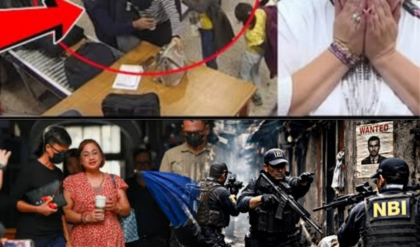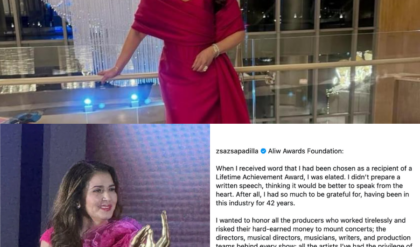I had only been married to my husband for two short years before death took him from me without mercy. No children. No warning. Just silence. The kind of silence that lingers endlessly, even when you scream inside it.
The night he died, I sat outside in the yard, staring at the sunset, letting my tears soak into the dusty ground beneath my feet. My chest felt hollow. My heart ached not just for the man I lost—but for the memories we never got to make. I wasn’t just mourning a husband… I was mourning dreams, futures, and parts of myself I had given to him.
That night, his relatives came in droves. Soft voices. Long faces. They brought condolences and empty promises. They cried with me—or so I thought.
Days passed. The funeral date was set. His family was surprisingly kind. They made sure I ate, rested, didn’t think too much. They told me I was still part of their family. They called me “nwunye anyi” — our wife.
I believed them.
Three days before the funeral, his brothers and uncles returned. This time, they brought firewood, goats, and crates of drinks. Tradition, they said. They asked me to prepare a special meal for the elders who would come to pay their final respects.
I nodded, wiped my face, and went to the kitchen.
Hours passed. The soup simmered. The smell filled the air. My eyes stung from the smoke and tears I couldn’t explain.
When the food was ready, I hesitated. Should I wait for them to call me? Or go tell them it was done? After a brief inner debate, I walked toward the living room.
Just before I entered, I heard my name.
And my feet froze.
Curiosity won over courtesy. I moved to the window and crouched down to listen.
“She has to go with him,” one of them said.
“It’s tradition. She didn’t bear him a child. This is how it has always been,” another added.
“Are we all agreed?” someone else asked.
“Yes. On the night of the vigil, we bind her hands and feet. Quietly. No noise. We slide her into the coffin before we seal it. The gods must be honored.”
My entire body froze.
They were planning to bury me alive with my husband.
They smiled at me by day and plotted my death by night.
Suddenly, the food I had prepared tasted like poison in my mouth. The same hands I used to pound yam were the ones they planned to bind behind my back.
And in that moment, I realized something terrifying.
They weren’t there to mourn.
They were there to kill me.
After hearing those horrifying words, my body trembled like a leaf in the wind. Reality hit me with brutal force: there was no salvation among them. They were my in-laws, yes—but in that moment, they had become my executioners.
The thought of being buried alive, trapped in the dark with my husband’s lifeless body, chilled me to the bone.
But in my desperation, a strength awoke within me—a strength I never knew I had. I remembered the stories my mother used to tell me about the women of our land: brave, resilient, defiant even when all seemed lost. I couldn’t give up. Not yet.
With a pounding heart, I slipped away from the window and returned to the kitchen. I had to act normal, make them believe I suspected nothing. I cooked more food, served their requests, kept my face calm while inside, I was plotting my escape.
That night, while the elders and relatives gathered for the vigil, I pretended to be tired and retired early to my room. I knew I couldn’t trust anyone—not even those who called me “family.”
Alone in the dark, lying on the hard floor, I listened to the distant murmurs, footsteps, and muted laughter that felt more like a celebration of my impending disappearance. But my mind was no longer in despair—it was in survival mode.
At dawn, as the house slept, I made a decision. I had to flee. I had to find help far from the place where tradition had turned into a death sentence. I gathered a few belongings—just enough to survive. I was afraid, yes. But also filled with a spark of hope.
Before leaving, I took one last look at the home I had shared with my husband, the place they now intended to turn into my grave. I closed my eyes and whispered a promise:
“I will not surrender. I will not be their victim.”
With steady steps and a heart ablaze with the will to live, I crossed the threshold, leaving behind a past drenched in betrayal, and walked toward an uncertain future.
I slipped away silently, as the first sun kissed the horizon—like nature itself conspired to light my path. Every step away from that house was a victory over the fear that had tried to consume me. I didn’t know where I was going, or whom I could trust—but I knew staying meant death.
The path was covered in dust and dry leaves. The morning air filled my lungs with a strange mix of relief and anxiety. I passed a few neighbors, but lowered my gaze, afraid of revealing my escape.
Hours later, I arrived at a small town I had never seen before. Life there felt gentler, less weighed down by secrets. I walked into a modest inn and asked for work as a servant. The owner, a kind-eyed woman named Amara, gave me a chance—without asking too many questions.
The following days were a mix of exhaustion and fragile hope. I worked from sunrise to sunset, but for the first time in a long while, I felt like I was building something of my own—far from the shadows that had tried to swallow me.
One afternoon, while sweeping the yard, Amara approached with a package in her hands.
“This arrived for you,” she said with a gentle smile.
I opened the package and found a letter without a sender. My hands trembled as I unfolded it and read:
“You are not alone. There are people who know the truth and are ready to help. Stay strong.”
Tears filled my eyes. That simple note was a beacon in the darkness.
That night, under the soft light of the moon, I made myself another promise:
I would fight for my life. I would not let betrayal and violence define my destiny.
The days turned into weeks, and though the fear never fully left me, life in the small town gave me breathing room. Amara became a friend and unexpected confidante. Each evening, after work, we shared stories and laughter, and little by little, my heart began to heal.
But my past still loomed. I knew I couldn’t hide forever. I had to confront it—to seek justice. Not only for myself, but for the memory of my husband and the future we never had.
One morning, while sweeping in front of the inn, a man appeared. Tall, with a serious but kind face, holding an envelope in his hand.
“Are you… her?” he asked cautiously.
I nodded silently.
“I’ve been sent to help you,” he said, handing me the envelope.
“This is from someone who wants to see you safe—and reclaim what was stolen from you.”
I opened it with trembling hands. Inside were documents: proof, testimonies, even recordings that exposed the dark plans of my husband’s family. Someone had been watching. Waiting for the right time.
That night, I slept with a sense of peace I hadn’t felt in months.
With the support of that unknown ally, I began planning my return. Not just to reclaim my life—but to expose the truth and protect others from suffering the same fate.
Amara and I contacted a lawyer in the city known for defending women in similar situations. He advised us to move carefully, in silence, until the case was solid.
Meanwhile, I began visiting the local church. Not only for comfort—but to connect with the community, to listen and gather whispers of truth.
One afternoon, I overheard two men talking in low voices near the entrance.
“If she comes back with that evidence, we’re finished,” one said bitterly.
“We can’t let that happen,” the other replied.
They were watching me. But I was no longer afraid.
Quietly, Amara and I gathered witness testimonies—neighbors who had been threatened or who knew what really happened. Slowly, we built a case strong enough to shake the foundations of that family.
The day of confrontation finally arrived.
Armed with evidence and legal support, we stood before the town court.
The atmosphere was tense. The family stared at me with contempt. But this time, I wasn’t the silent victim.
The judge listened carefully. Testimonies were read. Documents reviewed.
After hours of hearing, the verdict was clear: a formal investigation would be opened. Several family members were suspended from community leadership. A criminal case was initiated.
My name, once stained by betrayal and silence, began to be associated with bravery and truth.
It wasn’t easy. There were dark days, threats, sleepless nights. But the light of truth outshone it all.





